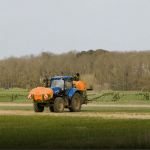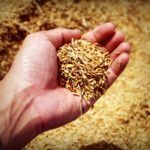Agriculture
Opportunities of the bioeconomy
Following an exchange of views, the Council approved conclusions on the opportunities provided by the bioeconomy in the light of current challenges, with a focus on rural areas. Ministers highlighted the key role that the bioeconomy could play in achieving the environmental and climate goals under the European Green Deal, while also making the EU more competitive, helping it transition away from fossil-fuel dependency, and strengthening food security in the wake of Russia’s war of aggression against Ukraine. They also stressed the importance of promoting research and innovation and improving alignment between scientific advances and industry policy. The conclusions will provide political guidance for the European Commission and member states on developing the potential of the bioeconomy in Europe.
Regulation on the certification of carbon removals: agricultural and forestry aspects
Based on information from the Commission, the Council held a policy debate on the agricultural and forestry aspects of the proposed regulation on the certification of carbon removals. Ministers welcomed the proposed regulation and highlighted both the potential contribution to the EU’s climate goals and the opportunity to boost farmers’ and forest managers’ incomes. During the discussion a number of elements were raised, including the need to:
- establish a reliable method for measuring the quality and quantity of carbon removals, based on scientific data
- ensure coherence with the Common Agricultural Policy and relevant environmental legislation, while also guaranteeing food security
- provide sufficient incentives for farmers, forest managers and landowners, including those that already practice carbon removal
- avoid excessive administrative and financial burden (especially for small farms) and ensure that the measures are voluntary
- take into account regional and national specificities

EU Organic award 2023 |
CAP strategic plans: state of play
Based on information from the Commission, ministers exchanged views on the state of play of member states’ strategic plans under the Common Agricultural Policy (CAP) for 2023-2027. The discussion focused around the lessons learned from the introduction of the strategic plans in member states, and what should be done to further facilitate and improve the implementation of the strategic plans in the short and longer term. Ministers highlighted a number of elements, including the need for clear communication with farmers on the updated rules and a flexible approach to any amendments to the plans.
Market situation in particular following the invasion of Ukraine
The Ukrainian Minister of Agrarian Policy and Food, Mykola Solskyi, spoke to the Council via videoconference and expressed the gratitude of Ukrainian farmers and the Ukrainian people for the EU’s support. He stressed that imports from Ukraine are mutually beneficial for both Ukraine and the EU, and warned that Russia is taking advantage of the current situation to put pressure on Ukraine.
Following this exchange, the Council’s discussion focused on issues affecting the EU’s internal markets, including for countries neighbouring Ukraine, and the need for a thorough analysis of the impact of imports from Ukraine via the solidarity lanes. Ministers expressed their continued support for Ukraine, their commitment to finding solutions that do not compromise the EU’s solidarity with Ukraine, and the need for a coordinated approach at EU level. They also stressed their solidarity with the countries neighbouring Ukraine and sent a clear message of unity against Russia’s aggression, particularly as regards the autonomous trade measures and preserving the single market.
“A” items
‘Fit for 55’ package
The Council today adopted key pieces of legislation of the ‘Fit for 55’ package that will enable the EU to cut greenhouse gas emissions within the main sectors of the economy, while making sure the most vulnerable citizens and micro-enterprises, as well as the sectors exposed to carbon leakage, are effectively supported in the climate transition.
The Council voted on the following laws:
- Revision of the ETS Directive
- Amendment of the MRV shipping Regulation
- Revision of the ETS Aviation Directive
- Regulation establishing a Social Climate Fund
- Regulation establishing a Carbon Border Adjustment Mechanism
The new laws will enable the EU to reduce its net greenhouse gas emissions by at least 55% by 2030 compared to 1990 levels and to achieve climate neutrality in 2050.

Commission boosts action on pollinators
|
‘Ro-ro’ passenger ships
With a view to strengthening maritime safety, the Council also adopted a new directive to improve stability requirements for the so-called ‘ro-ro’ (roll-on/roll-off) passenger ships, known as ferries.
Product safety
The Council has also today adopted the general product safety regulation (GPSR), which reinforces the safety rules for products sold both offline and online.







Leave a Reply